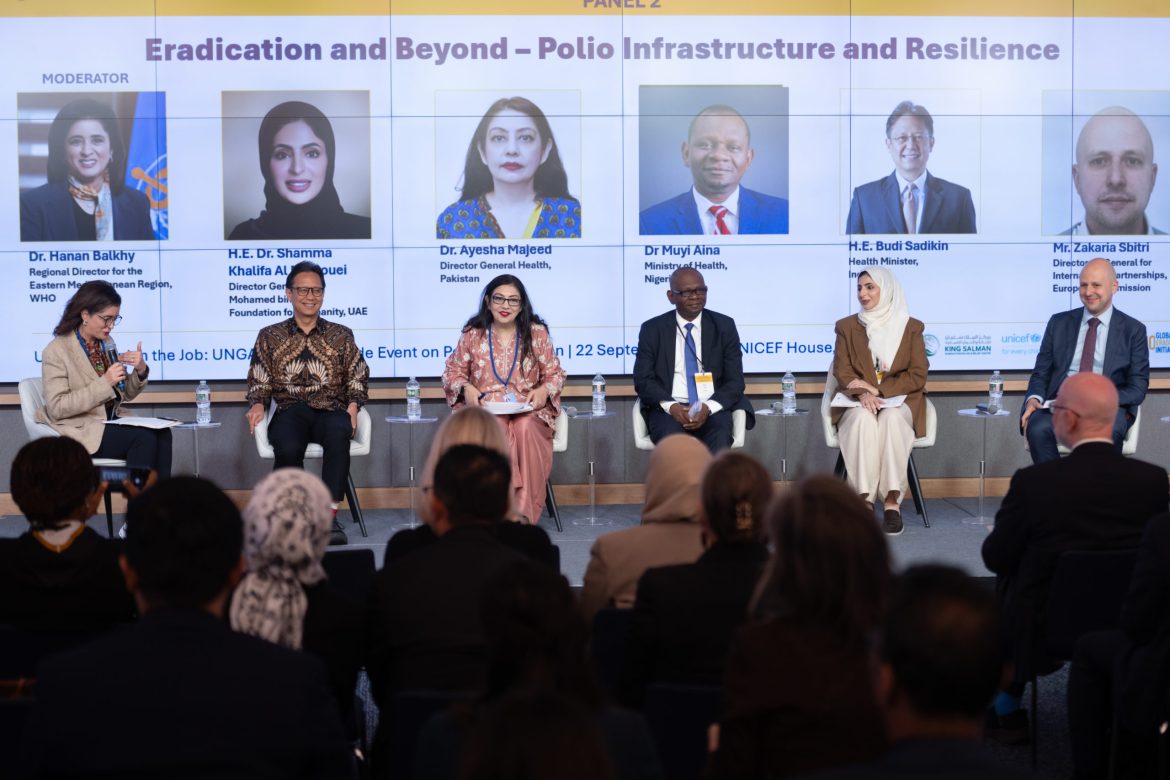By Iyemah David
Nigeria has renewed its commitment to ending Polio and strengthening routine immunisation as global leaders gather for the 80th United Nations General Assembly (UNGA).
Executive Director of the National Primary Health Care Development Agency (NPHCDA), Dr Muyi Aina, gave the assurance on Tuesday morning during a panel session on ‘Eradication & Beyond – Polio Infrastructure and Resilience,’ at UNGA.
Nigeria was certified free of wild poliovirus in August 2020 by the World Health Organisation (WHO), marking a historic milestone after decades of effort.
The country had once been regarded as the toughest place on earth to eradicate the virus, with insecurity, weak health systems, and community resistance posing major obstacles.
However, years of collaboration between government, international partners, traditional leaders, and frontline health workers paid off.
Millions of children were reached through mass immunisation campaigns, while surveillance and community engagement strategies were strengthened.
In spite of this achievement, Nigeria continues to battle outbreaks of cVPV2, a rare strain that emerges in under-immunised populations.
According to health experts, low routine immunisation coverage remains the greatest threat to sustaining Nigeria’s polio-free status.
Dr Aina reaffirmed the Federal Government’s resolve to intensify efforts to interrupt the transmission of circulating Vaccine-Derived Poliovirus type 2 (cVPV2) and rapidly scale up routine immunisation coverage.
“The Federal Government remains committed to ensuring that every Nigerian child is protected from vaccine-preventable diseases.
“Our polio infrastructure, built through years of collective effort, will continue to be leveraged not only for polio eradication but also to strengthen our health system and build resilience against future public health threats,” he said.
Dr Aina said that the country’s participation in the UNGA high-level sessions was an opportunity to strengthen partnerships, mobilise resources, and showcase the country’s commitment to global health security.
Meanwhile, Global health leaders at the UNGA meeting said that the fight against polio was not only about eradication but also about resilience.
They said the systems built to track, respond, and vaccinate during polio campaigns were now being repurposed to combat other public health challenges, including measles, cholera, and even pandemic preparedness.
Public health experts said Nigeria’s renewed pledge was critical to closing existing gaps.
Dr Faisal Shuaib, former NPHCDA boss, who led the final push against wild polio, once remarked that “the greatest threat to polio eradication is complacency.”
As the UNGA continues, more updates are expected on Nigeria’s participation in health-related side events, including discussions on immunisation, pandemic preparedness, and health financing.
For now, Nigeria’s message to the world is clear: the country is determined not only to eradicate cVPV2 but also to ensure that no child is left behind in the journey toward stronger, more resilient health systems.




